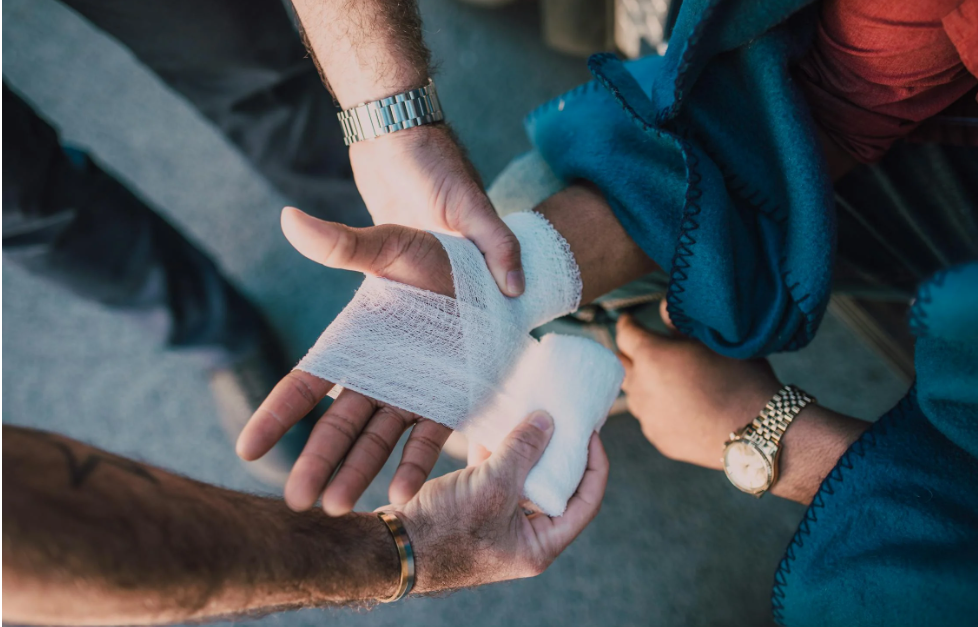We’ve all experienced it: a minor cut, scrape, or burn that, in theory, should heal quickly. Yet, sometimes, a simple wound can take longer than expected to heal or may not heal at all. This is called delayed wound healing.
While the obvious reason for this delay can be infection or negligence in the wound care, there are some other factors that can silently sabotage your body’s healing process. In this blog, we’ll understand them in detail. So, let’s get into it!
What are the Most Common Factors of Delayed Wound Healing That You Might Not Know?
When it comes to wound healing, most people focus on basic dressing & wound care. While it is important, there are some common factors that you should be aware of that can quietly slow down the healing process in your body. These factors are:
1. Nutritional Deficiency
Nutrition plays an important role in every stage of wound healing. Your body can’t heal a wound without an adequate amount of protein to build new tissues. Nutrients like Vitamin C and Zinc are necessary for collagen synthesis and immune function. Without enough of these key nutrients, the healing process slows down or stops even if you are getting necessary wound care solutions.
For example, Vitamin C supports the formation of new blood vessels and helps with inflammation control, while zinc is important for cell proliferation and repair. Even mild shortages of these nutrients can make it harder for the body to heal wounds.
2. Uncontrolled Chronic Health Conditions
Chronic health conditions such as high blood pressure, kidney diseases, diabetes, or heart issues can slow down how wounds heal. These illnesses often affect blood circulation, immune function, and tissue regeneration. For example:
- Diabetes reduces blood flow and damages nerves, which can increase the risk of infection.
- Poor circulation due to Peripheral Artery Disease (PAD) limits oxygen and nutrient delivery to the wound.
- Kidney problems can cause your body to lose protein and hold onto waste and fluid, which affects healing.
Regular medical follow-up, using the right wound care supplies and taking your medicine as prescribed can help wounds heal properly and prevent problems.
3. Certain Medications that You’re Taking
Some medications can slow down your body’s natural healing abilities. Steroids like prednisone reduce inflammation but also weaken the immune system. Chemotherapy drugs can impair cell growth, making tissue regeneration difficult.
Even long-term or high-dose use of common painkillers like ibuprofen can interfere with early healing. If healing is delayed, it’s worth reviewing current medications with a healthcare provider who offers wound care solutions.
4. Smoking and Alcohol
Many people underestimate the impact of occasional smoking. Even limited tobacco use can reduce the blood flow by narrowing blood vessels, making it harder for oxygen and other important nutrients to reach the wound.
Alcohol, especially in high amounts, weakens the body’s ability to fight infection and absorb nutrients. It also increases inflammation and can disrupt sleep, increasing its negative effects on tissue repair. Both habits can slow healing and increase the risk of complications in the body.
5. Poor Circulation
Healthy circulation is key to proper healing. Blood carries oxygen and nutrients to the wounded area, so if blood flow is limited, healing slows. Conditions like PAD, heart disease, or even sitting for too long can reduce circulation. Cold weather and tight clothing can also make things worse. Keeping your body warm and moving can help improve blood flow.
Conclusion
Wound healing depends on many factors. Things like missing nutrients, stress, smoking, poor sleep, and even medication or wound care all affect how fast and well you heal. If you notice a wound isn’t healing as expected, it’s always wise to consult a healthcare provider who offers wound care solutions for a better evaluation.
